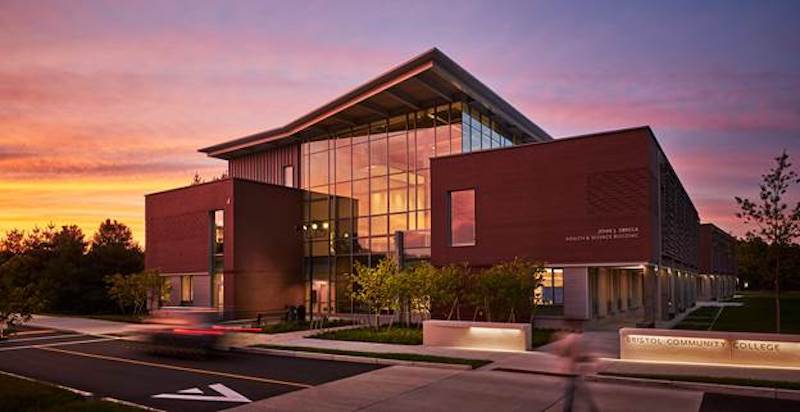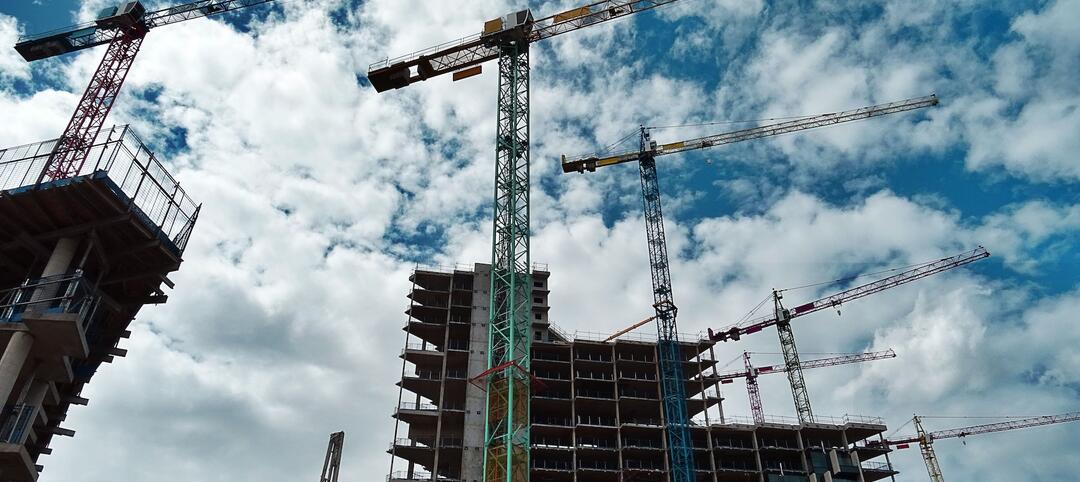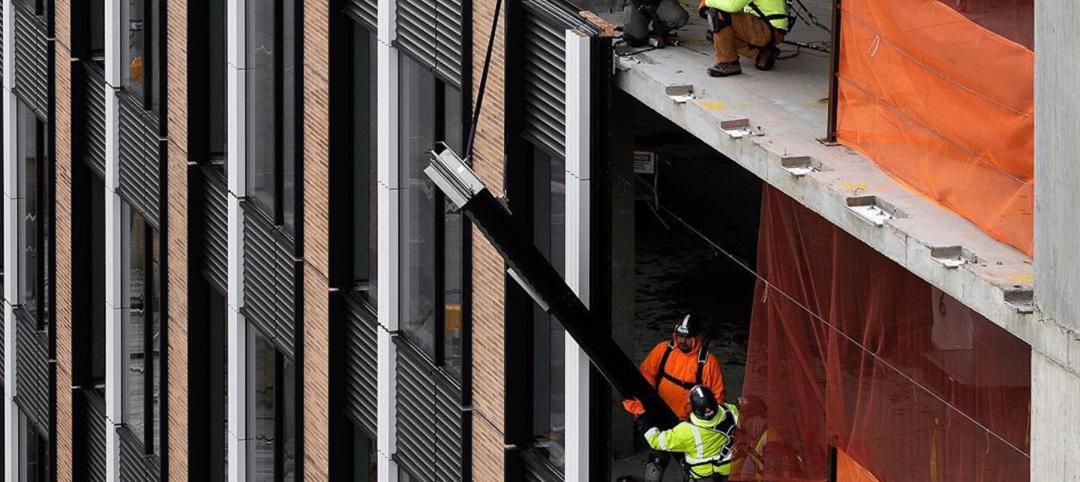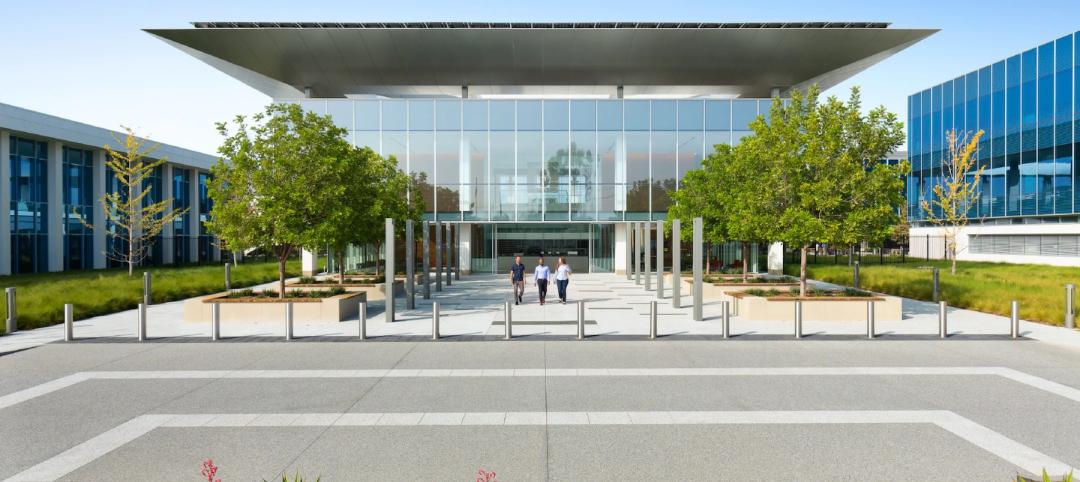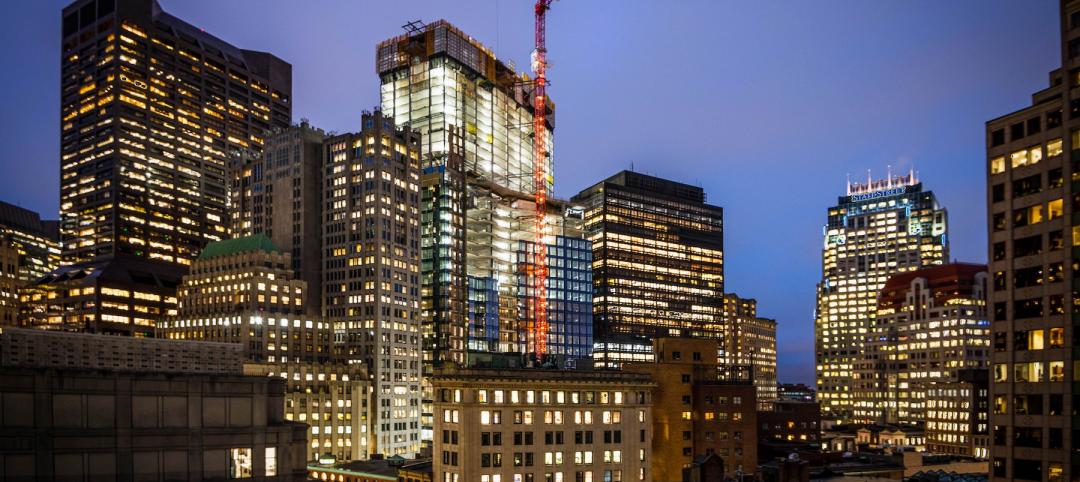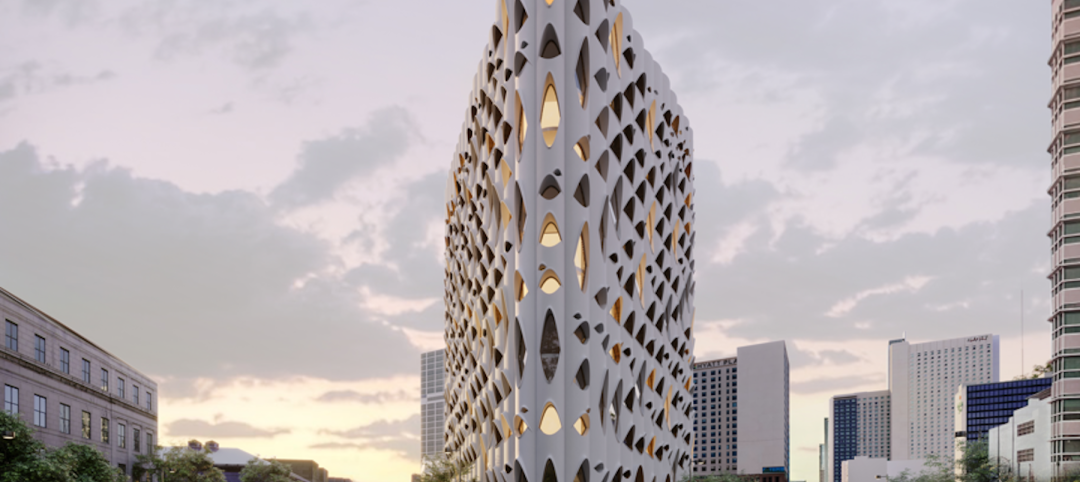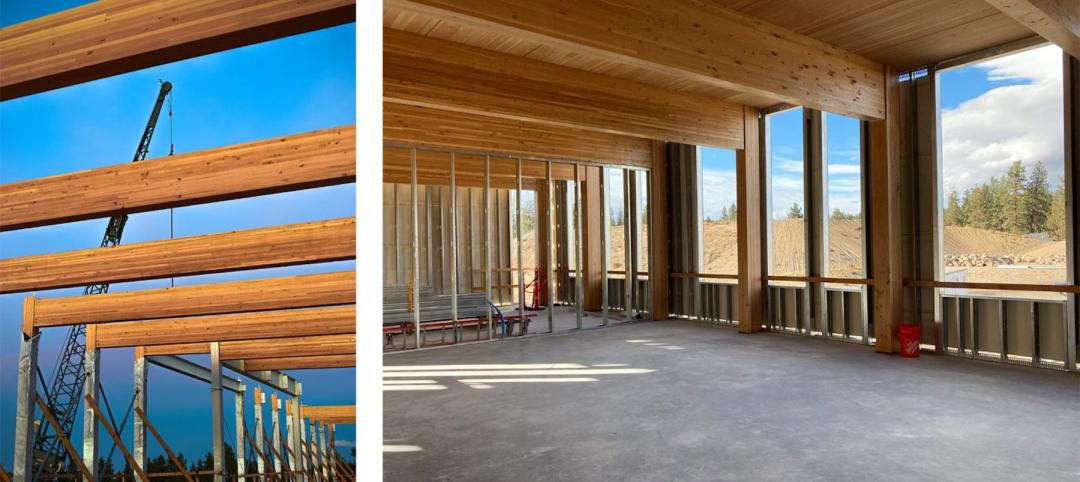The John J. Sbrega Health and Science Building, which opened last fall on the Fall River, Mass., campus of Bristol Community College (BCC), claims to be the largest zero net energy (ZNE) classroom and science lab building in the Northeast.
The 50,600-sf building, whose construction cost was $31.5 million, consists of two occupied floors and a mechanical penthouse. Its teaching laboratories, community spaces and interactive classrooms, are joined by a shared atrium that serves as a “learning commons” and student living room.
The Building Team on this project included the civil engineering and construction firm Bond (GC), Bard, Rao + Athanas Consulting Engineers (engineer), and Sasaki Associates (architect).
To achieve zero net energy goals in a facility with a large amount of energy consuming lab space, the design incorporates a large solar array field over the adjacent parking lot that works in tandem with a PV array on the roof of the building. The new facility is projected to use less than 20% of the new array and no fossil fuels for heating and cooling.
The Building Team also installed geothermal wells 500 feet below ground level that feed a ground source heat pump. This was coupled with an air source heat pump to provide heating and cooling to the building. In addition, 12 of the building’s 16 fume hoods filter and return air to the space, rather than exhausting it out into the atmosphere.
Significantly, the ZNE design was achieved without increasing the budget. The building will serve as an important benchmark for future campus development and a model for other institutions.
“We are especially proud of this new building for BCC, which has already received several awards for its innovative approach to sustainable construction,” said Robert Murray, Bond’s President. “It’s one of the first ZNE science laboratory buildings built in the Northeast and well equipped for the ever-changing needs of the college’s health and science curriculum.”
BCC, which was chartered in 1965, is one of the fastest-growing community colleges in the Northeast. The school offers more than 150 programs that include nursing, dental hygiene, biotechnology, microbiology, chemistry, and biology. The Health and Science Building—named after BCC’s president of 16 years, John J. Sbrega, who is retiring next August—brings much-needed new space to the burgeoning campus. It is LEED Platinum certified, and can be seen as a starting point for the college’s goal of achieving carbon neutrality by 2050.
On its website, Bond notes that one of this project’s challenges was the installation of three prefabricated mechanical room pieces, each 10 to 15 tons, that needed to be rigged through the structure, and placed during ongoing construction. Offsite commissioning, including control testing, allowed for plug and play of the mechanical room as well as critical control sequences.
Related Stories
| Sep 7, 2022
Use of GBCI building performance tools rapidly expanding
More than seven billion square feet of project space is now being tracked using Green Business Certification Inc.’s (GBCI’s) Arc performance platform.
Sponsored | BD+C University Course | Aug 24, 2022
Solutions for cladding performance and supply issues
This course covers design considerations and cladding assembly choices for creating high-performance building envelopes — a crucial element in healthy, energy-efficient buildings.
| Aug 23, 2022
New Mass. climate and energy law allows local bans on fossil fuel-powered appliances
A sweeping Massachusetts climate and energy bill recently signed into law by Republican governor Charlie Baker allows local bans on fossil fuel-powered appliances.
| Aug 22, 2022
Less bad is no longer good enough
As we enter the next phase of our fight against climate change, I am cautiously optimistic about our sustainable future and the design industry’s ability to affect what the American Institute of Architects (AIA) calls the biggest challenge of our generation.
| Aug 16, 2022
DOE funds 18 projects developing tech to enable buildings to store carbon
The Department of Energy announced $39 million in awards for 18 projects that are developing technologies to transform buildings into net carbon storage structures.
| Aug 15, 2022
Boston high-rise will be largest Passive House office building in the world
Winthrop Center, a new 691-foot tall, mixed-use tower in Boston was recently honored with the Passive House Trailblazer award.
Hotel Facilities | Aug 12, 2022
Denver builds the nation’s first carbon-positive hotel
Touted as the nation’s first carbon-positive hotel, Populus recently broke ground in downtown Denver.
Energy Efficiency | Aug 11, 2022
Commercial Energy Efficiency: Finally “In-the-Money!”
By now, many business leaders are out in front of policymakers on prioritizing the energy transition.
| Aug 8, 2022
Mass timber and net zero design for higher education and lab buildings
When sourced from sustainably managed forests, the use of wood as a replacement for concrete and steel on larger scale construction projects has myriad economic and environmental benefits that have been thoroughly outlined in everything from academic journals to the pages of Newsweek.
Legislation | Aug 5, 2022
D.C. City Council moves to require net-zero construction by 2026
The Washington, D.C. City Council unanimously passed legislation that would require all new buildings and substantial renovations in D.C. to be net-zero construction by 2026.


